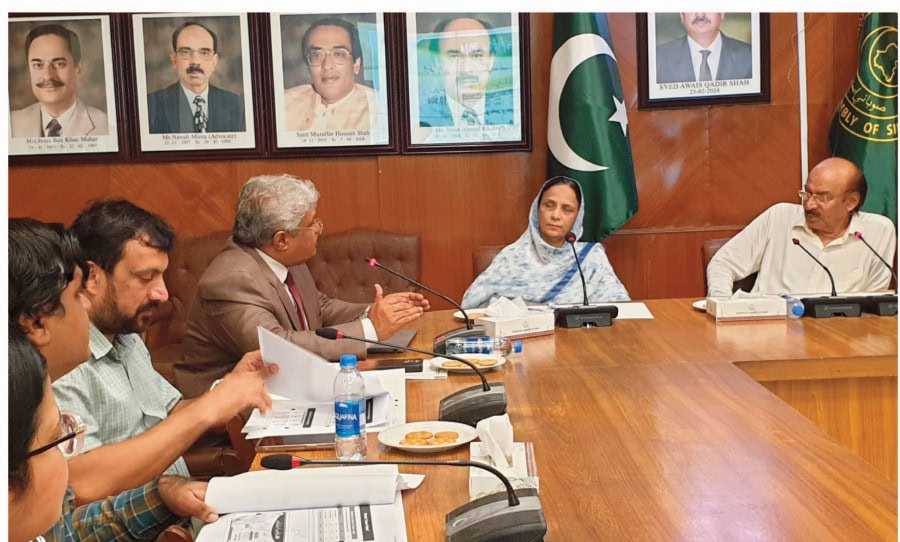Public Accounts Committee (PAC) Chairman NisarKhuhro emphasized the need to expand the Benazir Income Support Program (BISP) in Sindh to alleviate poverty, as 50% of the province’s population currently lives below the poverty line. Speaking to the media after a detailed briefing by BISP Sindh Director General Zulfiqar Sheikh and other officials, Khuhro highlighted the pressing need to include more households in the program.
Khuhro revealed that a survey of 9.5 million households in Sindh had been conducted, resulting in the registration of 2.4 million families in BISP. These families receive Rs. 11,000 every three months to support their livelihoods. He stressed the importance of expanding the program to cover more families, especially in light of job losses caused by court stays and election restrictions. “With many young people unemployed, BISP offers critical support in reducing poverty,” Khuhro said.
He also mentioned that families earning less than Rs. 29,000 per month can register for the program, and efforts are underway to increase the number of centers to ease crowding at the registration points. Khuhro praised the collaboration between BISP and the Asian Development Bank, which has resulted in 36 percent of registered women and over 6,000 students receiving both financial aid and technical training under an agreement with STEVTA.
This partnership aims to provide recipients with skills to secure employment and become self-sufficient. Additionally, Khuhro mentioned that 21.6 million children in Sindh have been enrolled in school under the Benazir Education Program, with monthly stipends ranging from Rs. 2,500 to Rs. 4,500 per child to ensure their continued education. Under the Benazir Nashonuma Program, 748,000 women and children in Sindh have been registered, with 140 facilities and 39 mobile teams set up for the program.
Registered pregnant women and children receive financial support ranging from Rs. 2,500 to Rs. 4,000. Khuhro also outlined the financial aid provided to 2.8 million flood victims in Sindh, with Rs. 25,000 per household, totaling Rs. 70 billion in relief funds.
Additionally, 216,000 farmers were given subsidies for wheat seeds, amounting to Rs. 8.3 billion. Furthermore, 6.96 million households benefited from wheat flour subsidies, receiving Rs. 13.8 billion in total. Khuhro criticized the previous government under Imran Khan for removing many poor families from the BISP in Sindh. He assured that the ongoing survey will help re-register these families, enabling them to receive the support they need to combat poverty effectively.










